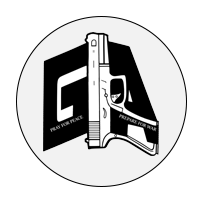Have you ever wondered what it takes to pass a background check? This question might pop up if you are applying for a new job, trying to rent an apartment, or making a big purchase. A background check might seem like a mysterious process, but understanding it can take away some of the anxiety.
Understanding Background Checks
Background checks serve as a means for employers, landlords, or other entities to confirm the identity and history of an individual. These checks can reveal information such as criminal records, employment history, credit scores, and even your driving record. Keeping this information in mind can aid you in preparing for and ultimately passing a background check.
Why Background Checks Are Conducted
Organizations conduct background checks to ensure trust and safety. For employers, it’s about ensuring the candidate is who they claim and has the appropriate professional background. For landlords, it’s about confirming if a potential tenant poses any financial risks. These checks can give organizations the peace of mind that they are making informed decisions.
Types of Background Checks
Background checks vary in scope and purpose. Some may focus on criminal records, while others might dig into your financial history. Here’s a closer look at some common types:
Criminal Background Check
This is perhaps the most well-known type of background check, often used by employers. It looks for any criminal history that might raise red flags about potential safety issues. It pulls data from national, state, or county records, depending on the extent of the check.
Employment Verification
An employment verification check ensures that you have the experience and qualifications you claim. Employers reach out to past employers to verify titles, periods of employment, and sometimes performance reviews.
Credit Check
Mainly used for positions that handle money or for rental applications, a credit check reveals your financial responsibility. It includes details like credit history, outstanding debts, and payment consistency.
Driving Record Check
This check is common for positions requiring you to drive. It includes information about traffic violations, accidents, and DUI convictions.
Education Verification
This involves confirming the educational qualifications listed on your resume. Institutions verify degrees, diplomas, or certifications that you say you’ve earned.

Preparing for a Background Check
Knowing the type of background check you will undergo is half the battle. Here’s how you can be ready:
Double-Check Your Records
Before your background check, it’s wise to verify personal information, such as your employment history, academic records, and any other detail you provided in your applications. Ensuring there are no discrepancies can reduce the likelihood of issues during the background check.
Review Your Credit Report
Since a credit check is a common component, reviewing your credit report can highlight any errors or debts you weren’t aware of. You are entitled to one free credit report a year from each of the three major credit reporting agencies: Equifax, Experian, and TransUnion.
Discuss Any Issues Openly
If there are potential issues that might arise during your background check, consider discussing them ahead of time. Employers or landlords appreciate honesty and may be more understanding if you address issues upfront.
Clearing Up Errors and Discrepancies
Errors on background reports are more common than you might think. Follow these steps to resolve any that might crop up:
Dispute Errors Promptly
If you identify mistakes in your background check, act quickly. Contact the reporting agency and file a formal dispute. Provide any supporting documentation that can help resolve the issue.
Contact Former Employers or Educational Institutions
If an error involves your employment or education history, reach out directly to former employers or educational institutions to correct records. Sometimes, a simple miscommunication or clerical error can cause these discrepancies.
Seek Legal Advice if Necessary
In some cases, particularly with criminal record errors, you might need to seek legal counsel. A lawyer can help you understand your rights and pursue corrections through the legal system if needed.

Legal Rights Regarding Background Checks
Understanding your legal rights when it comes to background checks can provide peace of mind and empower you during the process.
The Fair Credit Reporting Act (FCRA)
The FCRA outlines your rights when it comes to background checks for employment purposes. It mandates transparency about the checks being carried out and how the information will be used. Under the FCRA, you have the right to:
- Be informed if information in your report has been used against you.
- Know the details of the information and the reporting agency that provided it.
- Dispute inaccuracies or incomplete information in your report.
- Give consent before an employer can conduct a background check.
Post-Check: What Comes Next
Once you’ve completed your background check, it’s essential to be prepared for what follows.
Understanding Your Report
If you’re eligible, request a copy of your background check report. Understanding the information it contains ensures transparency and allows you to correct any errors swiftly.
Addressing Issues
If the report affects your application, talk openly with the involved party. Demonstrating willingness to resolve concerns can position you as an honest and proactive candidate.
Continue Building a Positive History
Continue to manage your personal records positively, ensuring accuracy and honesty in all your personal and professional dealings. This practice helps maintain clean records and a positive reputation.
Visiting Green Line Arms for Firearms Enthusiasts
If you’re interested in firearms or related accessories and training experiences, consider stepping into the world of Green Line Arms. Our shop in Pensacola, Florida, offers high-quality firearms and simulation experiences, catering to enthusiasts ranging from beginners to experts. Here, you can engage in responsible training and find the best-in-class firearm accessories that meet your needs.
Green Line Arms emphasizes creating a safe and informed firearms community. For further insights, our knowledgeable staff provides essential tips and guidance for integrating responsible gun practices into your routine.
Conclusion
Passing a background check becomes significantly easier when you understand its components and prepare adequately. From double-checking your records to knowing your rights, every step can lead to a smooth experience. With clarity and honesty as your guide, you’ll glide through the process with confidence and ease.
For firearms-related advice and experiences, consider visiting Green Line Arms. Whether you’re interested in purchasing firearms or seeking expert guidance on responsible ownership, we’re here to assist you in your journey. Remember, preparation is key, not just for background checks but for all aspects of life’s decisions. Good luck in your future endeavors!




